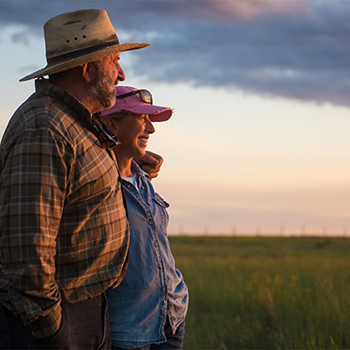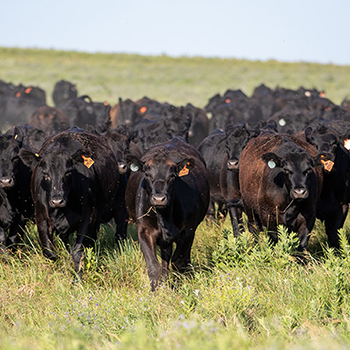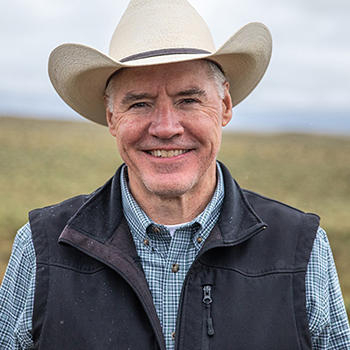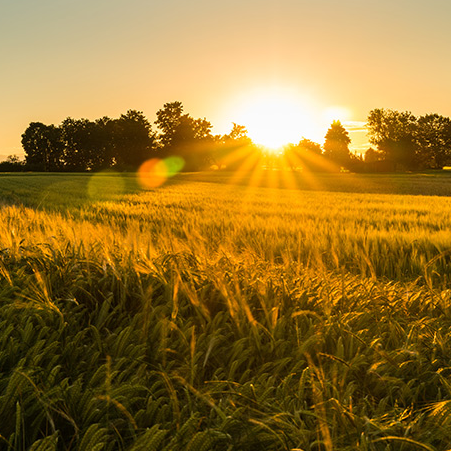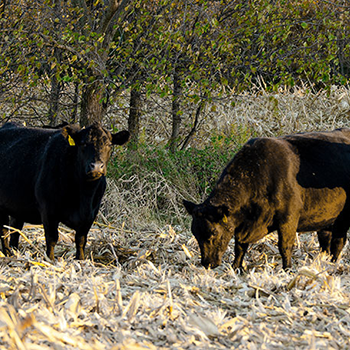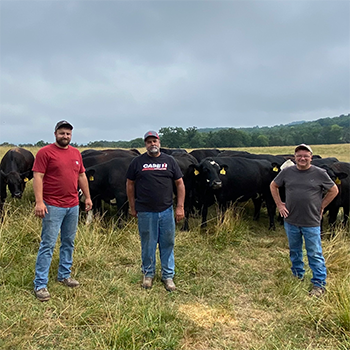News & Notes
Get a quick read on industry tidbits from around the country.
This month’s “News & Notes” includes how to learn more about candidates vying for the American Angus Association Board of Directors, the National Pork Producers Council’s oral arguments presented to the U.S. Supreme Court on Proposition 12, the Biden-Harris administration’s investment in school lunches, an opportunity to put the Certified Angus Beef® (CAB®) brand on your barn, and Google’s adding of a sustainability feature to its search function.
Listen to interviews of Board candidates
The American Angus Association has a strong history, but those looking to the future are tasked with preserving and improving it. That takes members who are willing to volunteer for leadership roles.
This year seven candidates are vying for the five open positions on the American Angus Association Board of Directors. Elections will take place Monday, Nov. 7, during the 139th Annual Convention of Delegates at the Angus Convention in Salt Lake City, Utah.
The Angus Journal asked each candidate about their background, the direction of the breed and what they’d bring to a seat on the board in a series of audio interviews. Hear directly from each of the candidates (Rob Adams, Art Butler, Joe Epperly, Robert Groom, Alan Mead, Henry Smith and Roger Wann) in a set of interviews available here.
NPPC, AFBF offer oral arguments on Proposition 12
The National Pork Producers Council (NPPC) and American Farm Bureau Federation (AFBF) presented oral arguments on NPPC v. Ross before the U.S. Supreme Court challenging the constitutionality of California Proposition 12.
“This is a historic day for American farmers,” NPPC said in an official statement Oct. 11. “As we’ve contended since 2018, one state should not be able to regulate commerce in another state and set arbitrary standards that lack any scientific, technical or agricultural basis. NPPC presented a strong case and is confident in its arguments presented to the Supreme Court justices. We appreciate the support of the Biden administration and look forward to the court’s decision.”
The National Cattlemen’s Beef Association (NCBA) reaffirmed its support for the NPPC’s position.
“While this case is not focused on cattle producers, the precedent set by the court will determine all producers’ ability to engage in interstate commerce,” said NCBA Vice President of Government Affairs Ethan Lane. “NCBA strongly supports economic freedom for all livestock producers to sell their high-quality protein from coast to coast, and we join NPPC in urging the Supreme Court to reject unconstitutional mandates on agricultural production.”
Earlier this year, NCBA filed an amicus brief before the court arguing that California’s mandates on livestock production methods violated the dormant commerce clause of the Constitution. Opening the door to state-level mandates creates a patchwork of rules that unreasonably restricts cattle producers’ ability to conduct business across state lines.
$80 million invested to improve nutrition in school meals
During National School Lunch Week Oct. 10-14, the Biden-Harris administration announced $50 million in grants for schools to invest in new foodservice equipment that will allow them to continue serving nutritious meals. The funding adds to the $30 million in equipment grants that the administration gave schools earlier this year.
The added support for school meals and child nutrition builds on the momentum from last month’s White House Conference on Hunger, Nutrition and Health, where the administration unveiled a national strategy to end hunger and reduce diet-related disease by 2030.
“Ensuring access to nutritious school meals is one of the best investments we can make in our fight to end child hunger and improve health,” said Agriculture Secretary Tom Vilsack. “As we celebrate the valiant efforts of school nutrition professionals across the country this National School Lunch Week, USDA is doubling down on our commitment to helping schools overcome challenges including higher food prices and continued supply chain disruptions. These additional resources will allow schools to provide healthy, appealing meals by meeting vital food service equipment needs.”
USDA provides grant funds to states, which use a competitive application process to award them to school districts that participate in the National School Lunch Program. School districts can use the funds to purchase upgraded equipment that will support:
- serving healthier meals, including those sourced from local foods;
- implementing scratch cooking;
- establishing or expanding school breakfast;
- storing fresh food;
- improving food safety.
These grants are the latest in a series of efforts to financially support school meals and ensure the nation’s children are nutritionally secure. Last month, USDA launched the first phase of a $100 million Healthy Meals Incentives Initiative, which will award grants for small and rural schools to improve meal quality. The request for applications is open to all nongovernmental organizations through Nov. 28, 2022. Later this year, the Food and Nutrition Service (FNS) will announce the second and final phase of the initiative that will expand nutritious food options for school meals through collaboration with food industry partners.
Angus Foundation to sell CAB barn painting at Angus Convention
The Angus Foundation is offering the chance at a highly desired Certified Angus Beef (CAB) barn painting at the 2022 Angus Convention in Salt Lake City. The painting will be auctioned off at the annual American Angus Association awards dinner and reception Sunday, Nov. 6. Funds raised will help further the Angus Foundation’s mission of supporting Angus education, youth and research.
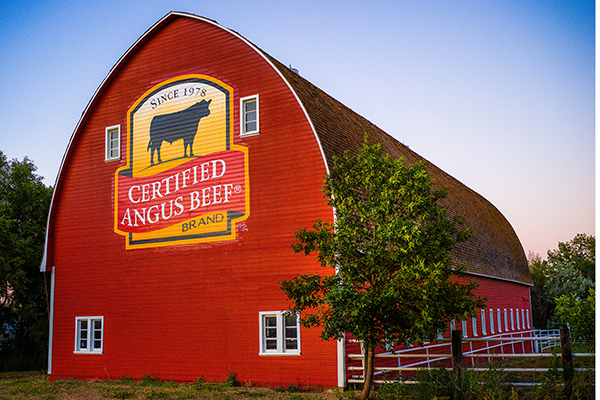
In 2018, Certified Angus Beef celebrated 40 years with the “Brand the Barn” campaign, painting 40 barns across the country. At the 2022 Angus Convention, the Angus Foundation will offer breeders a chance to have their barn branded with the logo. |
In 2018, CAB celebrated 40 years in business with the “Brand the Barn” campaign, painting 40 barns belonging to Angus breeders in 25 states across the country with the CAB brand logo. In response to the campaign, many Angus enthusiasts have joined the waiting list to have their own barn painted. The Angus Foundation will offer breeders the chance to skip the line and proudly represent the brand on their operation.
“This is a unique opportunity to show your pride for CAB while also supporting the future of the Angus breed,” said Jaclyn Upperman, Angus Foundation executive director. “The winning bidder will gain a beautiful barn painting and can feel fulfilled knowing they’ve helped continue the Angus legacy.”
CAB will commission artist Troy Freeman to brand the winning bidder’s barn and will also provide $1,000 for the barn owner to host a celebration event in conjunction with the barn painting. Bidders need not be present to purchase the offering. For more information about this opportunity, contact Upperman at JUpperman@Angus.org. To learn more about the 2022 Angus Convention, visit www.angusconvention.com.
Google adds environmental impact feature to search function
Google Search Director Hema Budaraju announced in September that Google is offering information about the environmental effect of items you might be searching for to buy. For example, those researching a car purchase can compare tailpipe emissions, while those searching for a recipe for chili can compare recipes based on the environmental effect of the ingredients. Google is sourcing the information from the United Nations, said Budaraju.
The National Cattlemen’s Beef Association (NCBA) Oct. 11 denounced Google’s decision to bias consumers against beef through their new sustainability search feature, saying it provides inaccurate climate information on cattle production.
“Google is using its billions of dollars of resources to target cattle producers and ignore the science that demonstrates beef’s sustainability and value to the environment,” said NCBA President Don Schiefelbein, a Minnesota cattle producer. “Cattle producers have a demonstrated record of continuous improvement, which has led to the United States recording the lowest global greenhouse gas (GHG) emissions from beef while contributing to food security for the world. Additionally, cattle production protects green space, upcycles grass and forages, and provides consumers with a lean protein source packed with essential nutrients. Google should seriously reconsider this feature.”
Livestock play an important role in protecting open spaces and account for only a very small portion of GHG emissions. Eliminating all livestock in the United States and removing beef from the diet would only reduce GHG emissions by 0.36% globally. NCBA is urging Google to consider the science of beef production before making this new feature widely available.
It is concerning that a tool with the potential for a broad global reach would encourage consumers to swap one ingredient for another, despite well-established science.
U.S. beef farmers and ranchers have been dedicated to sustainability for decades. As a result, the United States produces the most sustainable beef in the world. Still, farmers and ranchers are committed to continued improvement and innovation, and to producing high-quality, sustainable beef for generations to come.
Since this new Google Search tool will utilize UN data, we hope they will include the UN data that accurately outlines beef’s role in sustainable diets. For example, per the UN, the United States has had the lowest beef GHG emissions intensity in the world since 1996, while also contributing significantly to global food security, producing 18% of the world’s beef with just 6% of the cattle.
According to the EPA, methane from beef cattle only represents 2% of all GHG emissions in the United States. If all livestock in the United States were eliminated and every American followed a vegan diet, GHG emissions would only be reduced by 2.6%, or 0.36% globally.
While the beef industry is also committed to sustainability, reducing beef consumption in the United States is not a realistic or impactful solution for curbing climate change. We sincerely hope Google will take this into account before offering its newest feature.
